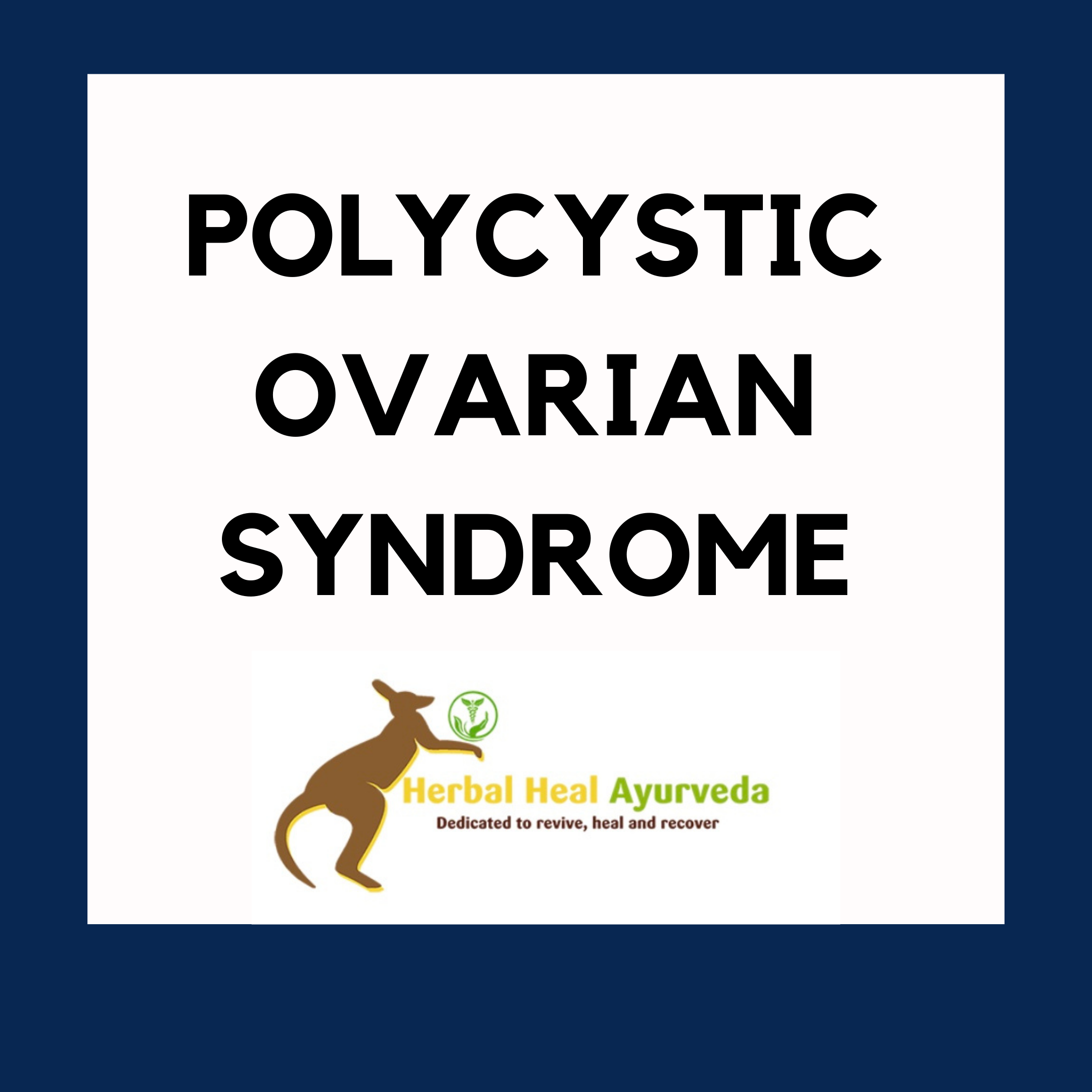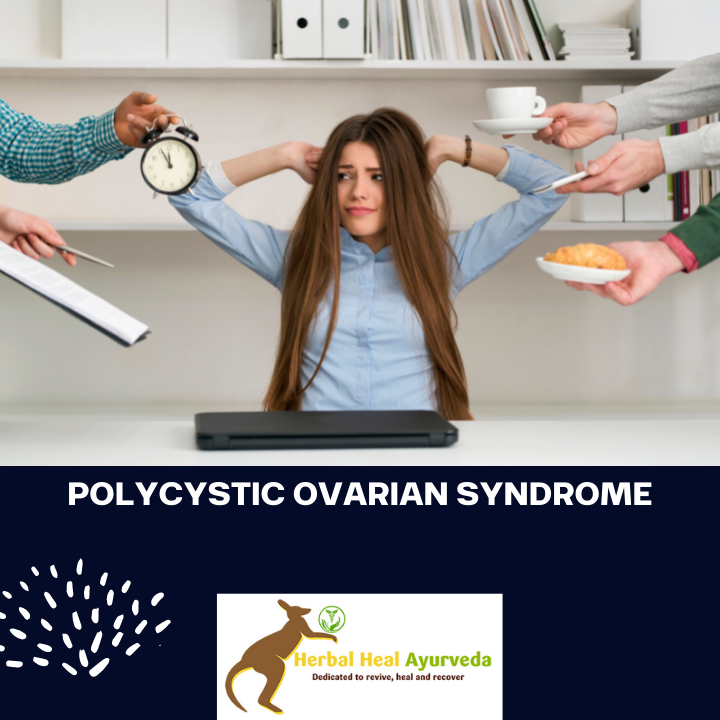Polycystic Ovarian Syndrome
Polycystic Ovarian Syndrome (PCOS), also known as Polycystic Ovarian Disease (PCOD), is a female health complaint.
This disease is a complex aggravation involving various organs and factors such as irregular menstrual bleeding, insulin resistance, and anovulation.
To be appropriate, it is a hormonal disorder that leads to enlarged ovaries and small cysts on the outer edges of the ovaries.
It is a most common endocrine disorder affecting around 6 to 12% of reproductive females, becoming the leading cause of female Infertility.


Causes of Polycystic Ovarian Syndrome:
The exact cause of PCOS is not known but the below mentioned factors might play a role.
Excess Insulin Production in the body increases androgen production causing difficulty with ovulation
Hereditary Certain genes are found to be linked with PCOS
Low-grade inflammation Women with PCOS are found to run a low-grade inflammation in their body, which in turn releases androgen from Polycystic ovaries and in the long run leads to heart and blood vessel problems.
Signs and symptoms:
PCOS is a “syndrome,” a group of symptoms affecting the ovaries and ovulation. It has various signs and symptoms; few important ones are listed below:
- Increasing obesity (abdominal 50%)
- Menstrual abnormalities (70%) in Amenorrhea, oligomenorrhea, dysfunctional uterine bleeding, and Infertility
- Presence of Hirsutism and Acne.
- The presence of Acanthosis Nigricans is a feature that occurs due to insulin resistance in the body. Specific skin changes characterise it. The skin becomes thickened and pigmented at the back of the neck, inner thighs, groin and axilla
- General Body weakness.
- Acne issues start developing.
- Excessive body hair growth.
- Some of the females face male pattern baldness and excessive hair loss issue.
- Hormonal changes may trigger headaches.
- Internal Examination reveals bilateral enlarged cystic ovaries. However, it may not show if the patient is very obese.
Risk factors
- Obese women have a high risk of developing PCOS.
- Sleep Apnoea also plays an important role.
- Unhealthy behaviours resulting in insulin resistance, hyperinsulinemia, and eight are also known to be risk factors for developing PCOS among women.
- Excessive mental stress may play a significant role in developing PCOS.
- Smoking and exposure to toxins are considerable.
- Women who indulge in a Sedentary lifestyle, overconsumption of diets and drinks rich in sugar content, fructose,
- Trans fat and animal fat are at high risk.
Diagnosis
The following procedures diagnose polycystic ovarian syndrome:
- BLOOD TESTS
LH level is elevated and/ or the ratio LH : FSH is > 3:1.
Estradiol and estrone level is raised.
SHBG (sex hormone-binding globulin) level is reduced.
Serum testosterone level is raised
Anti-Mullerian hormone (AMH) Is higher
- Ultrasonography
Ovaries are two to three times enlarged in volume. Increase in the number of peripherally arranged follicles per ovary. The endometrium lining may be thicker than usual if the patient has missed periods
Polycystic Ovarian Syndrome : Ayurvedic View
The direct reference to PCOS is not found in Ayurveda. PCOS though a syndrome, cannot be correlated entirely to a particular disease in Ayurveda. Conditions like Arajaska, Vandhya, Nasthartava, and Artavkshaya can be associated. Ayurveda classifies PCOS as a Kaphaja disorder though all other doshas get affected simultaneously. Besides this, if Dosha Dushya Samurchana is taken into consideration, then it will resemble Santarponnath Disease, Rasapradoshaj Vikar (Disease), Granthi (Cyst), Gulma, Vishamaartava and Yonivyapad Vata-Kapha Dosha mainly involved in it. If Aartava Atipravavrutti(DUB) phase, then Pitta-Kapha dosha is applied.
Causes:
- Due to intake of Viruddha Ahara- mutually incompatible food.
- Snighdha Ahara- Consuming unctuous oily and excessive calorific food
- Mandagni- Low digestive Power.
- Ajirnasana- Intake of food before digestion of a previous meal..
- Viruddha chestha- Unwholesome lifestyle practices.
- Nischestha- lack of Exercise/sedentary.
Types:
- According to the involvement of Dosha
1. Kaphaja
2. Vatakaphaja
3. Pittakaphaja
4. Sannipataja
Signs and Symptoms:
- The premonitory sign and symptoms are as follows:
1. Sthoulya - Obesity
2. Khalitya - hair fall
3. Alasya – Lethargy
4. Gaurav- Heaviness in the body
5. Apaka- Indigestion
Now have a look into the chief Sign and Symptoms. These Symptoms appear in the chronic stages.
1. Bandhya- Infertility
2. Sthoulya- Obesity
3. Mukhadooshika & khalitya – Acne and baldness
4. Artav Vyapad- Menstrual Abnormalities
5. Prameha- Type 2 Diabetes mellitus
6. Gourav- Heaviness of body
Basic Principles for Treatment:
The treatment procedure mainly focuses on correcting the Ama, Regulating the tridoshas, and achieving kostha suddhi
- Nidan parivarjan- Avoid a diet that can lead to aggravation of Kapha.
- Deepan pachan- Drugs are given to treat mandagni.
- Snehapan- Eranda taila (Castor oil) is given internally
- Virechan (Purgation) with haritaki churna / (Castor oil + Cow milk).
- Basti (Enema) – Uttarbasti is an effective measure to tackle gynaecological problems. It purifies the artav vaha srotas and pacifies the Vitiated Apan Vayu..
- Regularization of Apana vata- using vatakaphahara medication.
Single Herbs (Drug of choice)
Varuna, Haritaki, pippali, Bilva, Agnimantha, Guduchi, Punarnava,
Chitraka , Sunthi, Anjani.
Diets and Regimen to be followed (Pathya):
- Diet-Green leafy vegetables, moderate quantity of fish/meat, healthy fat like ghee, olive oil, Corn oil, Almond, legumes, sunflower seed, Walnut, pumpkin seeds, and Beans. Fatless Butter milk improves Digestion strength.
- Regimen- Rukhshana, Langhan(fasting), Moderate exercises, yogaasana like matsyasana, sarvangasana, pranayam such as kapalbhati.
Diets and Regimen to be Avoided (Apathya):
- Diet- White sugar to be avoided in all food items, items with a high glycaemic index such as potato, white rice, muffins and cakes, avoid milk and soya products. Limit salt intake.
- Regimen- Nischestha (sedentary lifestyle), Vega Dharan (Suppression of natural urges), Ratri Jagran (Staying awake at night), Ativyayam (Excessive Exercise).
Lifestyle Advice:
- Regular Exercise/Yoga /dance/morning walk is advised for at least 30 minutes daily.
- Strictly avoid Spicy, oily & sweet food, white sugar and non-veg food items.
Self-medication is not advisable. Advises are only for general information; you must consult an Ayurvedic doctor before making any lifestyle changes, diet changes or consuming ayurvedic drugs.
Book an Ayurveda Consultation with Dr Aswani Anil (B.A.MS). For more details, contact us at info@herbalheal.com.au,
166, Saint Johns Road, Glebe
Mobile - 0426 108 576
Herbal Heal Ayurveda Offers Authentic Kerala Ayurveda medicines, Ayurvedic diet advice and Authentic Panchakarma treatment. Come and experience the ayurvedic way of life with Dr Aswani Anil(B.A.M.S) at Herbal Heal Ayurveda Sydney.

